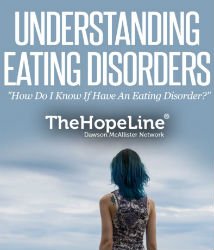Eating habits and abnormal eating patterns
Eating habits and abnormal eating patterns are a key characteristic of eating disorders. Eating disorders are characterized by abnormal eating habits that can lead to serious health problems. Eating habits and patterns that are often associated with eating disorders include:
- Food restriction: People with eating disorders may severely limit the amount and types of food they eat, which can lead to malnutrition and weight loss.
- Binge eating: People with eating disorders may engage in binge eating, or consuming large amounts of food in a short period of time, often accompanied by a sense of loss of control.
- Purging behaviors: People with eating disorders may engage in purging behaviors such as vomiting, laxative use, or excessive exercise to try to counteract the effects of binge eating.
- Compensatory behaviors: People with eating disorders may engage in compensatory behaviors such as fasting or excessive exercise to try to prevent weight gain.
- Rapid eating: People with eating disorders may eat rapidly, and eat until feeling uncomfortably full.
- Uncomfortable fullness: People with eating disorders may eat large amounts of food when not feeling physically hungry, and feel uncomfortable fullness.
- Emotional well-being: People with eating disorders may use food as a means of coping with difficult emotions or situations, or as a way to manage the physical symptoms of their disorder.
It is important to note that eating habits and patterns vary from person to person and not everyone who has abnormal eating habits or patterns has an eating disorder. Eating disorders are complex conditions that can affect anyone, and it is important to
be aware of the warning signs and to seek professional help if you or someone you know is displaying symptoms of an eating disorder. A healthcare professional such as a doctor, therapist, or dietitian can help determine if an eating disorder is present and provide appropriate treatment and support.
It’s also important to note that eating habits and patterns can change over time and with treatment. With the appropriate treatment and support, individuals with eating disorders can learn to develop healthy eating habits and patterns, improve their physical and emotional well-being, and lead fulfilling lives.









Recent Comments